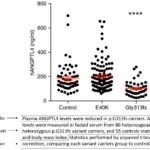The outbreak of COVID-19 has resulted in the cancellation of numerous academic conferences worldwide, with Nature questioning whether 2020 could be the “year without conferences” [1]. It is not so unusual for academic events to be cancelled. For example, the 2012 American Political Science Association (APSA) Annual Meeting was cancelled because of Hurricane Isaac [2]. […]
Is it misconduct to submit a translated version of a published paper to another journal?
The short answer … Yes – if you do not declare that it is a translated version of an already published paper. No – if you make it clear that it is a translated version, i.e., not original research. This blog English is the (current) universal language of science. The pressure on English-as-a-second-language (ESL) researchers […]
How to write a figure caption
Figure captions should be standalone, i.e., descriptive enough to be understood without having to refer to the main text. Effective captions typically include the following elements: a declarative title that summarises the result or major finding of the data you are presenting in the figure; a brief description of the methods necessary to understand the […]
Affect or effect?
The basics ‘Affect’ is a verb. It means to influence something, e.g. Diet affects a person’s risk of cancer. Diet actively influences a person’s risk of cancer. ‘Effect’ is a noun. It means an outcome, i.e., the result of an action: An effect of global warming is poorer air quality. We are describing the result […]
Can I cite a preprint?
Preprints are drafts of academic articles that have not been formally published, i.e., they have not been peer reviewed. Instead, they undergo a basic screening and are usually available on preprint servers within 48 hours of submission. Authors typically upload their papers as preprints to date-stamp any new discoveries and to receive feedback before formally […]





